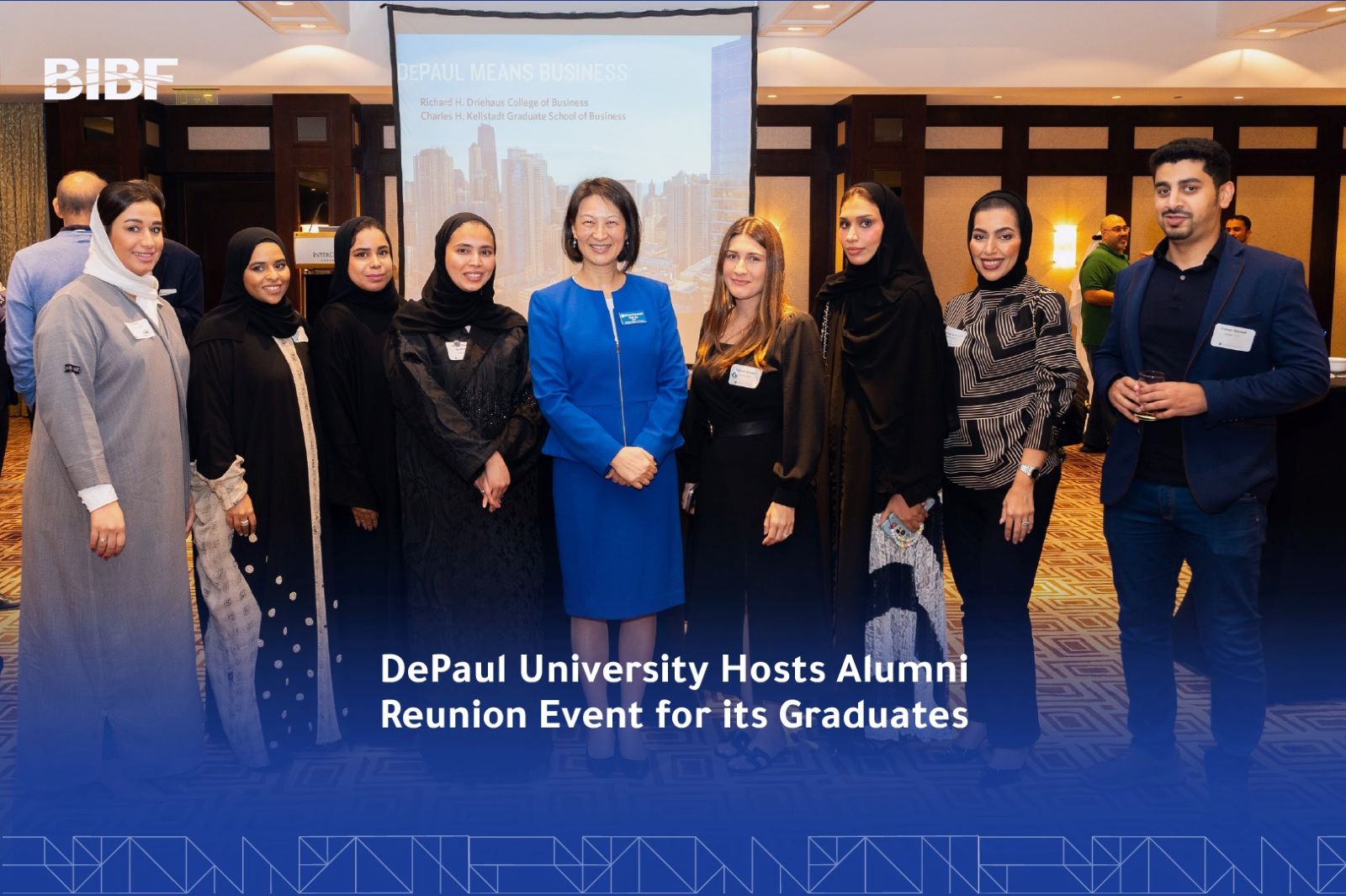
Shibu Philip (DBA ’19) has over 20 years of experience as a project management and technology leader at companies including Amazon, Yahoo and AOL. In addition to holding a PMP certification and a master’s in engineering management, he is a graduate of the Doctorate of Business Administration program at Kellstadt, where he now teaches.
So when the opportunity arose to teach in Bahrain, Philip eagerly embraced it.
“Students in Bahrain are driving growth and change in their fields,” he observed. “They’re at the forefront of their careers.”
Since 2001, DePaul has partnered with the Bahrain Institute of Banking and Finance (BIBF) to offer multiple graduate degree programs: a part-time MBA and Master of Science programs in Human Resources and Finance. The MBA program was the first in the entire Gulf region to be taught entirely by US-based faculty.
Due to the COVID-19 pandemic, Philip taught remotely for his first two terms teaching with the program. This fall, he finally got the chance to go to Bahrain in person.
For Philip, teaching at the BIBF program was a homecoming. Philip spent part of his upbringing in the region. He still has family in the area. When he arrived in Bahrain to teach, he found a welcoming community. Students were excited to get to know him and one another. They had already formed tight bonds, he said, within their cohorts. And they were eager to integrate expertise from abroad into their own careers and lives.
“As much as students in the program want to know what’s happening in the US,” Philip said, “they want to know how it applies.”
As for Philip, teaching in Bahrain has broadened his practice as a teacher.
Back in the US, he was already intentional, he said, about using real-world examples to help students “map theory onto practice.” This was a key part of what drew him to Kellstadt’s DBA program, and to teaching.
Teaching in Bahrain led Philip to turn his focus to examples from the Middle East.
The recent World Cup in Qatar was one such example. He is careful to stress that the competition was not without its challenges. One of its many highlights, however, was the work organizers did to ensure that stadiums and other buildings constructed for the competition would have a meaningful afterlife.
“How you close a project is just as important as how you open one,” he stressed, especially to students studying human resources. “Your name will be associated with that. It will be part of your professional legacy.”
Another real-world example involved Diversity, Equity and Inclusion (DEI) initiatives. Just as DEI is a timely issue in the corporate world in the US, he said, so too are leaders in the Middle East considering how to implement DEI principles.
Context, though, makes all the difference.
“There are limitations,” he said, to taking the American version of DEI and applying to the context in Bahrain.
“More than half of the workforce there is made up of expats,” he said. So, whereas American companies may focus on increasing representation of a wide range of ethnic and national backgrounds, companies in Bahrain “have to think more broadly about what diversity looks like.”
As Philip summed it up: “It’s the same thing but in a different flavor.”
When Philip returns to teaching in the US, he’ll bring these examples with him. Considering context, he stressed, can help students think more broadly and creatively about what innovation looks like.
To take an illustrative example: Delivery services like DoorDash and Uber Eats are major players in the US. But in Bahrain, they’ve failed to make inroads. That’s because, Philip said, the infrastructure in the region and the low cost of labor has led a competitor, Talabat, that delivers primarily on motorbikes to become a more popular — and economical — alternative.
“Human resources has an important voice” in this area, Philip said. The intense time pressure that delivery drivers face leads to high turnover. New approaches are needed in order to make delivery services sustainable.
It’s just one example, Philip says, of how local context shapes the forms that innovation can take. He hopes that such examples will make his students more attuned to how context influences innovation, wherever they call home.
Zooming out, Philip stressed that the Kellstadt-BIBF collaboration is unique in the region. Many other universities, he said, locate their offerings in Dubai or the United Arab Emirates.
“Bahrain is a small country,” he said, “in a very up-and-coming area. And we have this unique opportunity to shape the next generation of leaders. We have the ability to shape minds and lives.”